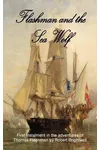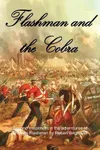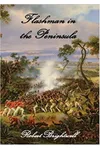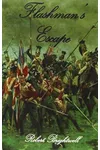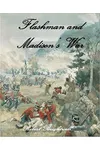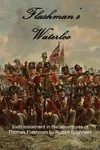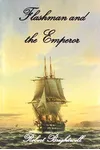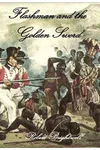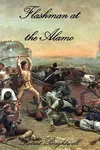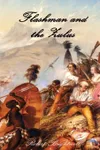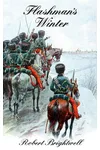Step into the rollicking world of the Thomas Flashman series, where a roguish Englishman stumbles through the Napoleonic and Georgian eras with a knack for landing in hot water! Penned by Robert Brightwell, this historical fiction saga follows Thomas Flashman, the fictional uncle of George MacDonald Fraser’s infamous Harry Flashman. With a blend of swashbuckling adventure, dry humor, and meticulously researched history, these novels whisk readers from London’s seedy underbelly to the battlefields of Europe and beyond.
Imagine a hero who’s less ‘heroic’ and more ‘hilariously human’—Thomas is a self-preserving scoundrel with a talent for dodging danger while rubbing elbows with historical giants like Thomas Cochrane and the Duke of Wellington. If you love history with a side of mischief, this series is your ticket to a wild ride!
How Flashman Began
Inspired by George MacDonald Fraser’s iconic Flashman Papers, Robert Brightwell launched the Thomas Flashman series in 2012 with Flashman and the Seawolf. Fraser’s Harry Flashman, a Victorian cad from Tom Brown’s School Days, set the stage for a new generation of rogues. Brightwell, captivated by the Regency and Napoleonic eras’ color and chaos, crafted Thomas as Harry’s uncle, weaving him into real historical events with a fictional twist. His goal? To tell ‘stranger-than-fiction’ stories, blending impeccable research with a cheeky narrative style.
Brightwell’s passion for history shines through, as he draws on figures like the daring naval commander Thomas Cochrane and lesser-known tales, such as the Begum of Samru’s rise from dancer to warrior. The result is a series that feels both authentic and delightfully irreverent.
The Heart of Flashman
The series kicks off with Flashman and the Seawolf (2012), where Thomas joins Thomas Cochrane on a daring naval adventure, navigating espionage and the Mediterranean’s perils. Flashman and the Cobra (2013) takes him to India, entangled in Arthur Wellesley’s campaigns and post-Reign of Terror France, with a cast of historical figures and a dose of humor. Flashman in the Peninsula (2014) dives into the Peninsular War, showcasing Thomas’s knack for sparking scandals—like a royal disgrace that birthed a famous novelist—while dodging lancers and vengeful foes. Flashman’s Waterloo (2016) places him at the heart of Napoleon’s final stand, weaving a comedic yet gripping tale of survival.
Themes of cowardice, cunning, and unexpected heroism run throughout, with Thomas’s roguish charm offsetting the era’s grim realities. Brightwell’s style is vivid and witty, blending battle scenes with bawdy escapades and footnotes that ground the fiction in fact. The settings—spanning Europe, India, and South America—burst with period detail, from the smoke of Waterloo to Rio’s vibrant streets.
Unlike Fraser’s Harry, Thomas is less cruel, often showing a softer side, like writing letters for illiterate sailors in Seawolf. This makes him a flawed yet relatable lens through which to explore the era’s triumphs and tragedies, appealing to fans of Sharpe or Hornblower with a lighter, more satirical edge.
Why Flashman Resonates
The Thomas Flashman series has carved a niche in historical fiction, praised for its balance of education and entertainment. Fans on Goodreads and Audible laud its humor and historical depth, with reviews calling it a ‘worthy successor’ to Fraser’s work. Brightwell’s ability to spotlight obscure figures—like Cochrane, dubbed ‘Le Loup de Mers’ by Napoleon—adds fresh intrigue to well-trodden historical ground.
Its lasting appeal lies in its accessibility: you don’t need a history degree to enjoy Thomas’s antics, yet the novels reward curious readers with rich context. By blending fact and fiction, the series brings the Napoleonic era to life, making it a gem for genre fans and history buffs alike.
About Flashman
- First published: 2012 (Flashman and the Seawolf)
- Number of books: 8 (as of 2018, including Flashman and the Golden Sword)
- Setting: Napoleonic and Georgian eras (1800–1830s)
- Author: Robert Brightwell, inspired by George MacDonald Fraser
Ready to join a rogue’s romp through history? Grab Flashman and the Seawolf and dive into Thomas Flashman’s riotous world of adventure!
